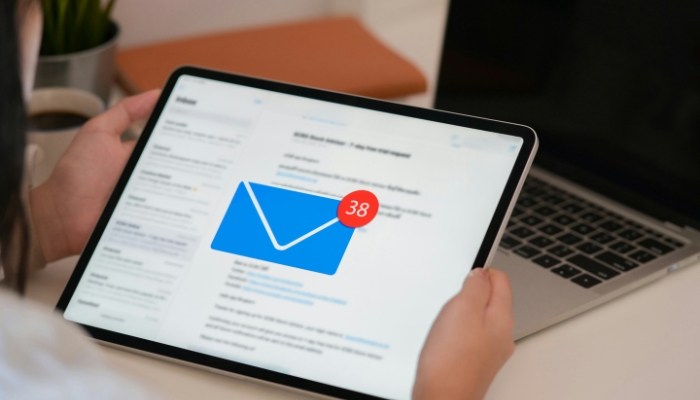
In this era of digital communication, questions surrounding the legality and ethics of accessing someone else’s email without their consent are of increasing relevance. The issue is complex, with legal ramifications that vary depending on the jurisdiction, as well as the context and intent of the action.
Yes, it is generally illegal to look at someone’s email without their permission. Unauthorized access to email accounts, known as email hacking or email snooping, is considered a violation of privacy laws and can lead to criminal charges, including charges of computer-related crime, federal crime, or identity theft. Legal consequences may include prison time, fines, or civil liabilities for damages. It is important to respect email privacy and only access emails for which you have explicit consent or authorized access.
Furthermore, the ethical implications cannot be overlooked. As you explore this topic “is it illegal to look at someone’s email” further, consider the nuances that could potentially shape your stance on whether it’s illegal to look at someone else’s email.
Understanding Email Privacy
In the realm of digital communication, understanding email privacy is paramount, as it fundamentally pertains to the legal and ethical aspects of accessing and viewing another individual’s personal correspondence. This concept is grounded in the belief that one’s personal email should remain confidential unless explicit consent is given for others to view it.
Email privacy is often compromised through unauthorized access of email accounts. This is a significant issue as it infringes on an individual’s privacy rights and can lead to misuse of sensitive information. Unauthorized access can occur in various forms, such as hacking, phishing, or even as simple as someone using a device left unattended.
In this context, the role of the email service provider is crucial. They are entrusted with the responsibility of safeguarding the privacy of their clients’ email accounts from unauthorized access. This includes implementing robust security measures to prevent breaches and responding promptly to any reported incidents of unauthorized access.
Laws Associated With Email Privacy

Given the importance of email privacy and the potential consequences of its violation, various laws have been put in place worldwide to protect individuals’ electronic correspondence. In the United States, for instance, the Electronic Communications Privacy Act (ECPA) is a federal statute that criminalizes unauthorized access to emails. This statute not only covers email privacy violations but also extends to any form of electronic communication.
Moreover, the Stored Communications Act (SCA), part of the ECPA, specifically prohibits the intentional, unauthorized access to a facility providing electronic communication service, thereby safeguarding private emails. It also acts as a deterrent to potential violators by laying out stringent penalties for offenders.
In the European Union, the General Data Protection Regulation (GDPR) has a broader reach. It requires explicit consent before any personal data, including emails, can be processed, thereby ensuring stringent protection against unauthorized access to emails.
Consequences of Unauthorized Email Access
Breaching email privacy by unauthorized access carries significant penalties, reflecting the seriousness of such actions in today’s digital society. The consequences of email snooping are severe and can be categorized into criminal charges and legal consequences.
From a criminal perspective, unauthorized access, particularly email hacking, is considered a serious offense. It is punishable under various statutes, such as the Computer Fraud and Abuse Act in the United States. Depending on the jurisdiction and the extent of the crime, offenders can face hefty fines, imprisonment, or both. For instance, if the hacking leads to identity theft, the penalties become more severe.
On the legal front, victims of unauthorized access have the right to pursue civil action against the offender. They can sue for damages incurred due to the breach of privacy, including emotional distress, financial loss, and harm to reputation. Additionally, if the snooping occurs in a workplace context, it can lead to employment consequences, including termination.
Ethical Implications of Reading Others’ Emails
Beyond the legal consequences, peering into someone else’s email correspondence raises profound ethical questions, delving into issues of privacy, trust, and respect. Accessing email accounts without permission is not only a breach of confidentiality but also an invasion of personal space. It is akin to entering someone’s home uninvited.
Like traditional letters, people consider email messages personal and private. Most societies generally frown upon unauthorized access to them, akin to snooping activities. This is because they violate the principle of respect for individual privacy, a cornerstone of ethical conduct. In addition, such actions can have significant consequences for relationships. The breach of trust resulting from these acts can lead to damaged relationships, both personal and professional.
Moreover, the ethical implications of reading others’ emails extend to the societal level. If individuals feel their privacy is not respected, it can lead to an erosion of trust in digital communications, hindering effective interpersonal and professional communication. Therefore, from an ethical perspective, unauthorized access to others’ email is not just an individual transgression but a potential societal concern.
Case Studies on Email Privacy Violations
To further illustrate the gravity of unauthorized email access, let’s examine a few real-world instances where email privacy was violated, causing significant repercussions.
- The infamous Sony Pictures hack in 2014 involved unauthorized access to sensitive corporate emails, resulting in extensive damages and embarrassment for the company.
- A well-known case of email intrusion involved David Petraeus, former CIA director, whose personal emails were unlawfully accessed, leading to his resignation in 2012.
- The ‘Celebgate’ scandal in 2014 involved hacking into email accounts of numerous celebrities, leading to widespread privacy violations.
- In 2018, a former Microsoft employee was sentenced to 18 months in prison for unauthorized access to customer email accounts.
- A high-profile instance occurred in 2016 when the Democratic National Committee’s emails were hacked, significantly impacting the U.S. presidential election.
These cases demonstrate the severity of criminal penalties for email privacy violations and the decisive action against perpetrators, including those using a fake email for malicious purposes. They emphasize that any form of unauthorized access or email intrusion is not merely unethical but illegal, punishable by law.
As we can see, hacking into email accounts can have far-reaching consequences, both personally and professionally.
Email Providers and Privacy Policies

While considering the legal implications of unauthorized access to emails, it’s equally important to understand the role of email providers and their privacy policies in ensuring user data protection. Email providers, such as Gmail, Yahoo, and Outlook, have privacy policies that explicitly state their commitment to protecting user data from unauthorized access.
One critical factor is how these email providers handle potential instances of email hacking. They employ sophisticated security measures to detect any irregularities, like unusual login locations or attempts to change account details, which could indicate an email hacker’s activities.
However, users can legally grant email access under certain circumstances, like providing consent or when law enforcement compels the provider. Thus, privacy policies detail the conditions for data sharing or access.
Email clients and users must be aware of these stipulations. Understanding the parameters set by these privacy policies can help users to better manage their online privacy and security. This knowledge can be useful in preventing unauthorized access to emails and ensuring that their private communications remain secure.
Protecting Your Email From Intruders
Given the potential risks highlighted in email providers’ privacy policies. It is crucial for users to take proactive measures to safeguard their email addresses from unauthorized access and potential intruders. This not only limits the threat of hacking activities but also prevents being implicated unknowingly in illegal activity.
Here are five steps to ensure your email security:
- Create robust passwords: Strong, unique passwords are your first line of defense against hackers. Incorporate a mix of characters, numbers, and symbols to enhance security.
- Enable two-factor authentication (2FA): 2FA provides an additional layer of security by requiring a second form of identification alongside your password.
- Beware of phishing scams: Always verify the source of an email before clicking on any included links or downloading attachments.
- Use encrypted email services: Encryption converts your emails into unreadable text, offering an additional protection against intruders.
- Maintain regular backups: Backup protection helps recover lost or compromised data, ensuring your information remains safe.
Email Privacy: Rights and Responsibilities

Understanding the rights and responsibilities associated with email privacy is fundamental in navigating the digital world responsibly and securely. The question, ‘is it illegal to look at someone’s email’, isn’t as straightforward as it may seem. The answer largely depends on the circumstances, with the scope and matter of consent acting as pivotal factors.
Legally, reading someone else’s email without their consent or impersonating someone in an email is considered an invasion of privacy. Privacy rights stipulate that individuals have the right to control who can access their personal information, including emails. However, these rights can be superseded if explicit or implied consent has been given. This consent can be complex to define, as its scope can range from full access to certain circumstances only.
In terms of responsibilities, it is crucial to respect these rights. Even if it were legal to read someone else’s email, ethically, it is not recommended without explicit permission. This is a core tenet of digital citizenship, promoting respect for privacy and encouraging responsible behavior online.
In essence, email privacy: rights and responsibilities intertwine, underscoring the importance of consent and the respect for personal boundaries in the digital realm.
Tips for Respecting Others’ Email Privacy
Respecting the email privacy of others is a fundamental aspect of responsible digital citizenship, and there are practical strategies to ensure this respect is consistently maintained. Understanding and adhering to these strategies not only strengthens personal relationships, but it also prevents potential legal repercussions.
Here are five key tips to respect others’ email privacy:
- Never access another person’s email without explicit consent: This is a clear violation of privacy rights.
- Avoid forwarding emails without permission: Even if the content seems harmless, always ask for consent.
- Use blind carbon copy (Bcc) when sending mass emails: This prevents the unintended sharing of email addresses.
- Refrain from sharing sensitive information via email: Unless necessary and with consent, avoid this potentially risky action.
- Report any breaches of email privacy: Take immediate action for violation, report to authorities, and inform the concerned individual.
Conclusion
Unauthorized access and reading of someone else’s emails is not only unethical, but it is also generally illegal. The consequences of such actions can be severe, including legal penalties and loss of trust.
It is crucial for individuals to respect others’ email privacy, adhere to policies provided by email providers, and take steps to protect their email from intruders. The responsibility for email privacy rests on all users, emphasizing the importance of digital ethics in our increasingly interconnected world.
FAQs: Is It Illegal to Look at Someone’s Email?
What constitutes unauthorized access to email accounts?
Unauthorized access occurs when someone gains entry to an email account without the explicit consent of the account owner. This can include guessing passwords, using email hacking tools, or exploiting security vulnerabilities. Accessing someone’s email without permission is generally considered illegal activity under various federal statutes, such as the Computer Fraud and Abuse Act in the United States.
Can criminal charges be filed for email intrusion?
Yes, criminal charges can be filed for email intrusion. If the intrusion involves hacking into email accounts, stealing sensitive information, or using the email account for criminal purposes. The offender can face criminal penalties, including felony charges, prison time, or months in jail.
What are the legal consequences of email snooping?
The legal consequences of email snooping can vary depending on the severity of the breach and the laws of the jurisdiction. In addition to criminal charges, the victim may pursue civil liabilities for actual damages, punitive damages, or compensatory damages. Legal action may also be taken to address privacy violations and damage to reputation.
Are there any exceptions that allow access to emails without permission?
Some exceptions allow email monitoring, like for criminal investigations or company policy compliance. Yet, these require strict legal adherence, often needing a court order or clear consent from those involved.